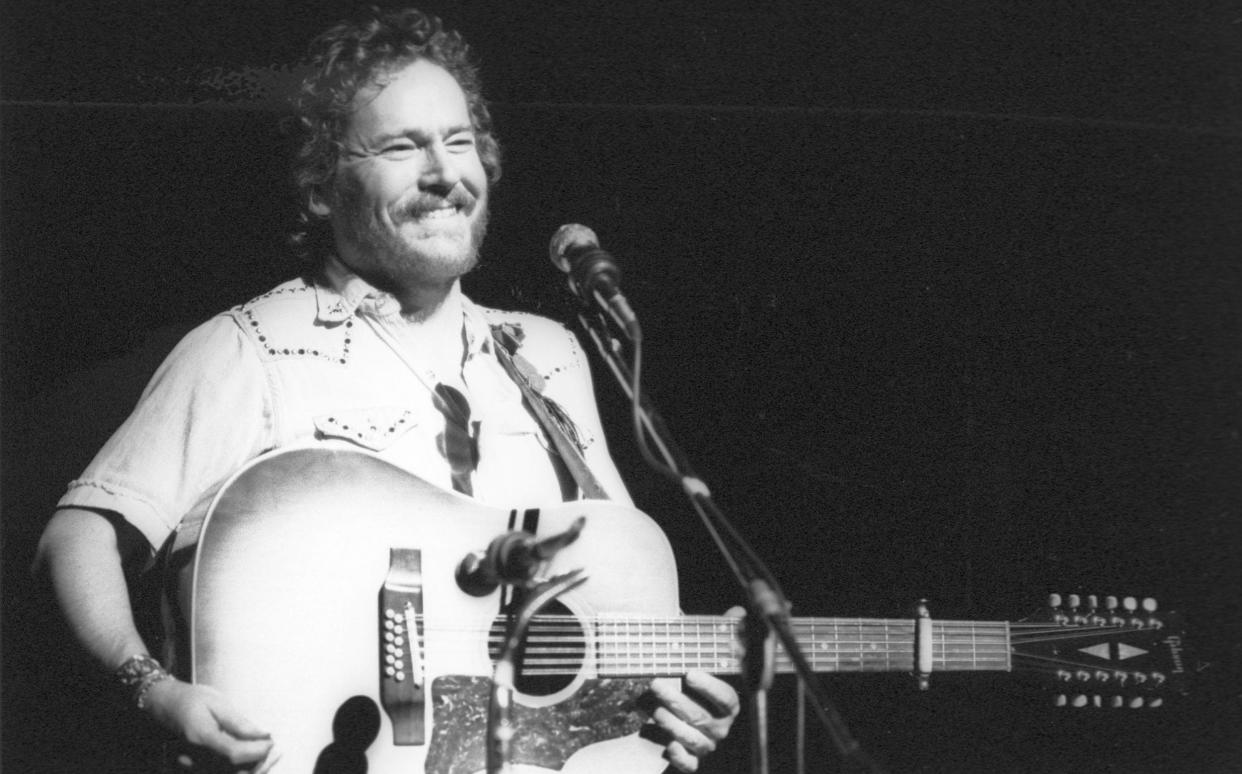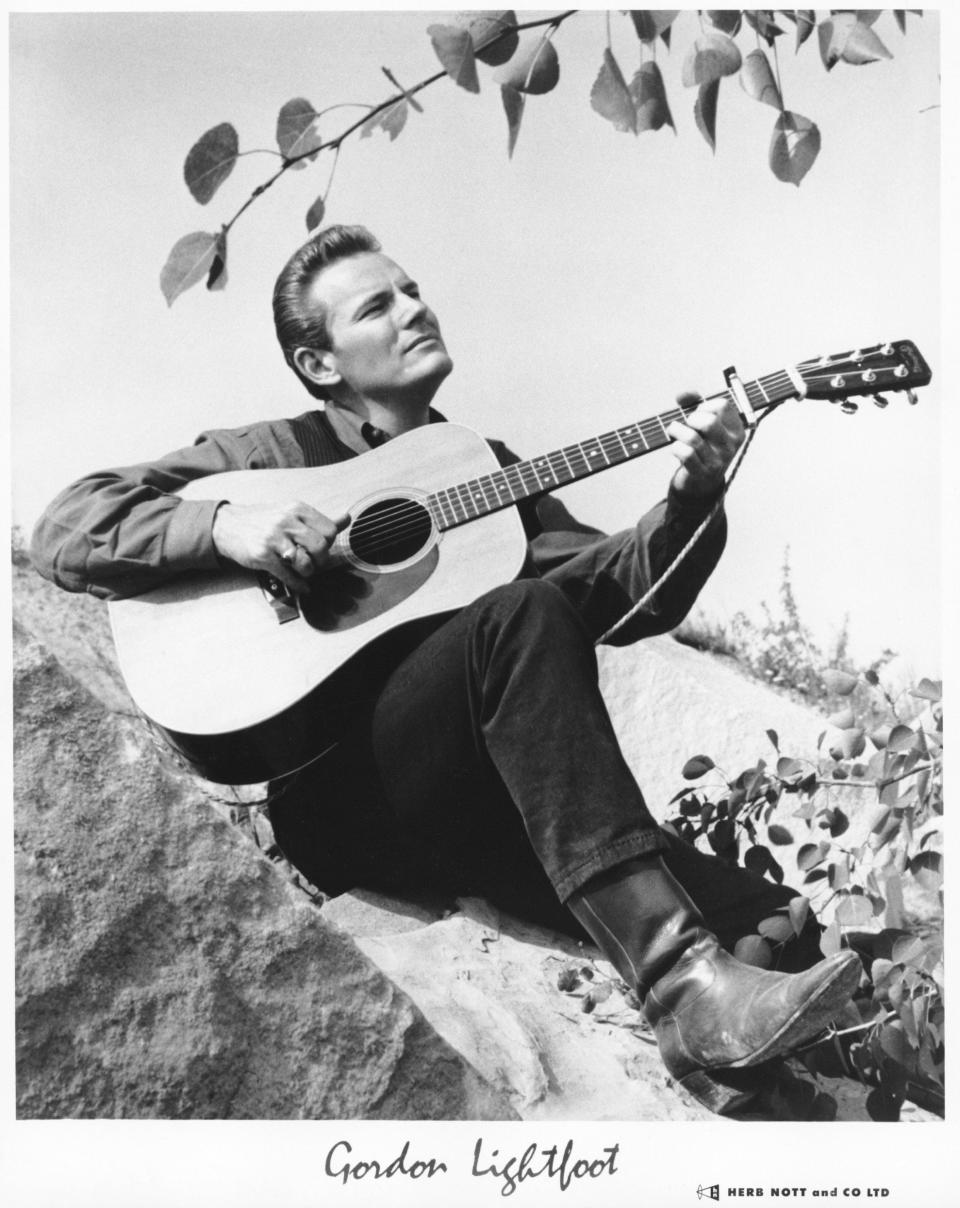Gordon Lightfoot, singer and songwriter best known for his worldwide hit If You Could Read My Mind – obituary

Gordon Lightfoot, who has died aged 84, was a singer and songwriter whose work was covered by the likes of Elvis Presley, Johnny Cash and the folk trio Peter, Paul and Mary; his best-known song, If You Could Read My Mind (1970), was a hit around the world, although his own favourite song, Canadian Railroad Trilogy, could perhaps be properly understood only by Canadians, since it dealt with the myth of the Canadian Pacific Railway tying the country together.
With his acoustic 12-string guitar, Lightfoot was much admired at home, and every year would pack out Massey Hall in Toronto. From 1965 he was a fixture on chart radio in Canada, even before the government forced commercial stations to play a quota of Canadian music.
Gordon Meredith Lightfoot was born on November 17 1938, in Orillia, Ontario, the lakeside resort north of Toronto that Stephen Leacock made famous in his story sequence Sunshine Sketches of a Little Town.
Young Gordon started piano lessons aged eight, sang in local choirs, and at 13 won the category for Boy’s Unchanged Voices at the Kiwanis Music Festival. He studied composition at the Westlake College of Music in Los Angeles for two years, and by his early 20s he was singing and dancing on the Country Hoedown TV show.
But he had more dimensions than the usual chorus-line performer. He won a barbershop quartet contest, and was performing in the coffee-house scene that also nurtured the likes of Joni Mitchell, with whom he became friends, and Neil Young, who would go on to cover If You Could Read My Mind. Some of the thinking of the beat novelist Jack Kerouac rubbed off in one of Lightfoot’s early successes, Early Morning Rain, with its opening line: “In the early morning rain with a dollar in my hand...”
The last two lines are perhaps the best remembered, especially in Las Vegas, where Elvis liked to croon the song: “You can’t jump a jet plane, like you can a freight train,/ So I’d best be on my way in the early morning rain.” While Lightfoot, with his small-town middle-class upbringing, never quite led the life of a hobo, Elvis was a poor boy who liked the hard-luck sound of the song.

Peter Paul and Mary covered Lightfoot’s For Lovin’ Me, a track on his debut album Lightfoot!, which was recorded in December 1964 but not released until January 1966.
By then Lightfoot – who recalled that hearing Bob Dylan was a turning point in his career – was becoming a chart-radio staple in Canada, even before Ottawa forced commercial stations to play a quota of Canadian music. Then in 1970 came his break-out hit, If You Could Read My Mind, a track inspired by the break-up of his marriage, which went to No 1 at home and in the US.
In 1976 he had another chart-topper with The Wreck of the Edmund Fitzgerald, the story of a lake freighter breaking up in a storm on Lake Superior the previous year with the loss of the entire 29-man crew. The hunger striker Bobby Sands drew on the tune for his song Back Home in Derry, which was covered by Christie Moore on his 1984 album Ride On.
Gordon Lightfoot was a straightforward, likeable man, not keen on fame; he hated giving interviews and having his picture taken, and thought of himself as a songwriter more than a performer. He wrote about his own life, his drinking and his love affairs on the road – one of which was in the 1960s with Cathy Smith, a groupie from Hamilton, Ontario, who long after her fling with Lightfoot took up with John Belushi and gave him the drug hit that killed him.
She inspired such Lightfoot songs as Rainy Day People, and Sundown, a No 1 on both sides of the border. The latter’s dark lyrics also talked about Lightfoot’s growing booze and pill problem: “Sometimes I think it’s a shame,/ When I get feelin’ better when I’m feelin’ no pain.”
Lightfoot had a rather Canadian cure for boozing: going on extended canoe trips in the north of the country to dry out, the longest lasting several weeks. He gave up drink for good in 1982 after a warning from his doctors and took to working out at a gym in Toronto.

Lightfoot won 16 individual Juno Awards, presented by the Canadian Academy of Recording Arts and Sciences, as well as several more for his records, and in 2003 he was appointed a Companion of the Order of Canada, the country’s highest civilian honour.
Despite nearly dying from an aortic aneurysm before he was due to go on stage in 2002 and suffering a minor stroke four years later, Lightfoot continued touring and recording into his 80s, releasing his final album, Solo, in 2020.
Gordon Lightfoot was married three times, and is survived by his third wife, Kim Hasse, whom he married in 2014, and by a daughter and son from his first marriage, two sons from his second marriage, and a daughter and son from other relationships.
Gordon Lightfoot, born November 17 1938, died May 1 2023

 Yahoo News
Yahoo News 
